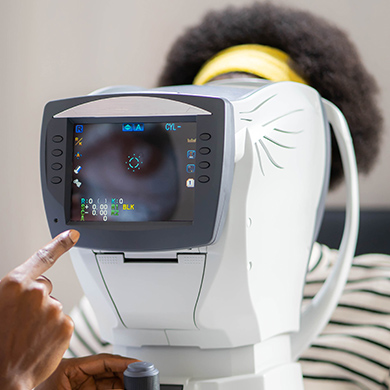
Dry eye is a common and often uncomfortable condition that can significantly affect your quality of life. While environmental and medical factors can play a role, your lifestyle choices may also be contributing more than you think. Understanding how your habits impact your eye health is key to finding effective relief and protecting your vision.
What Is Dry Eye?
Dry eye occurs when your eyes don’t produce enough tears or when the quality of your tears is inadequate. Tears are essential for maintaining a healthy eye surface, providing lubrication, and protecting against infection. When tear production is disrupted, it can lead to symptoms such as:
- A stinging or burning sensation
- Redness and irritation
- Sensitivity to light
- A gritty feeling, as if something is in your eye
- Blurred vision
Common Causes of Dry Eye
Dry eye can develop for a variety of reasons. Some of the most common include:
- Aging, especially in individuals over 50
- Hormonal changes, particularly in women during menopause
- Certain medications, such as antihistamines and antidepressants
- Medical conditions like diabetes, rheumatoid arthritis, or thyroid disorders
How Can Lifestyle Choices Contribute to Dry Eye?
Your daily habits and routines can have a major impact on tear production and eye health. Here’s how:
- Prolonged Screen Time: Staring at a computer, tablet, or phone screen for long periods can reduce your blink rate, leading to faster tear evaporation and dry eye symptoms.
- Poor Hydration and Diet: Not drinking enough water can lead to dehydration, which affects tear production. Diets low in omega-3 fatty acids and high in processed foods may also contribute to inflammation that worsens dry eye.
- Contact Lens Overuse: Wearing contact lenses for extended periods or not following proper hygiene can dry out your eyes and disrupt the tear film.
- Environmental Exposures: Spending time in air-conditioned or heated environments, or exposure to smoke and pollution, can cause or exacerbate dryness.
- Lack of Sleep: Insufficient sleep can reduce tear production and compromise eye health, making your eyes more prone to dryness and discomfort.
When to See Your Eye Doctor
If you’re experiencing persistent symptoms of dry eye, it’s important to seek a professional evaluation. At Visual Health Doctors of Optometry, we use advanced diagnostic tools to determine the root cause of your symptoms and create a personalized treatment plan. A proper diagnosis ensures targeted care that brings real relief - whether through lifestyle adjustments, prescription treatments, or advanced therapies.
Achieve Dry Eye Relief at Visual Health Doctors of Optometry
Dry eye can interfere with daily life if left untreated. Fortunately, making conscious lifestyle choices and getting professional care can go a long way in preventing and managing symptoms.
Schedule a consultation with Visual Health Doctors of Optometry to get to the root of your dry eye symptoms and receive expert care tailored to your needs. Visit any of our offices in Alexandria, Arlington, Ashburn, Burke, Fairfax, Falls Church, Herndon, or Woodbridge, Virginia. Contact a location nearest you, or book an appointment on our website today.










